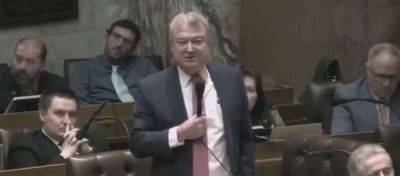What to know about a proposed Wisconsin tax on electric vehicle chargers
Electric vehicle charging stations could spring up at gas stations and grocery stores throughout Wisconsin, after the state Senate passed a proposed bill on Tuesday.
The bill, which passed by a 30-2 vote, would ease restrictions on businesses that install chargers and impose a tax on electricity sold to electric vehicle owners.
The measure would also make Wisconsin eligible for nearly $80 million in federal funds for the installation of charging stations and other electric vehicle infrastructure.
Here's what to know about the proposed expansion of charging stations and what happens next with the bill:
The number of electric vehicles registered in Wisconsin has exploded in recent years.
The state counted roughly 17,000 electric vehicles last year; that was up from some 3,500 electric vehicles registered in Wisconsin four years prior, according to the Wisconsin Department of Transportation.
In turn, some lawmakers want to expand the state's network of charging stations in order to accommodate the uptick in drivers.
Currently, businesses that offer EV charging stations fall under a set of regulations that typically apply to utilities.
The proposed bill would exempt the businesses from such rules as long as they sell electricity based on the amount that customer receives instead of the duration of time spent occupying a charger.
This approach would allow the state to impose a tax on the amount of electricity sold to customers.
The tax would slap a 3-cent levy on each kilowatt hour of electricity sold to a vehicle owner.
Electric vehicle chargers are categorized as level 1, level 2 or level 3, meaning a first-level machine charges the slowest while a third-level one charges the fastest. All existing level 1 and level 2 charges would be







